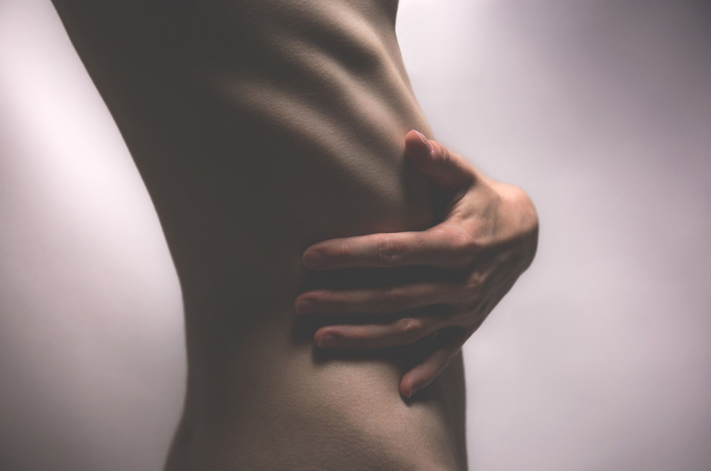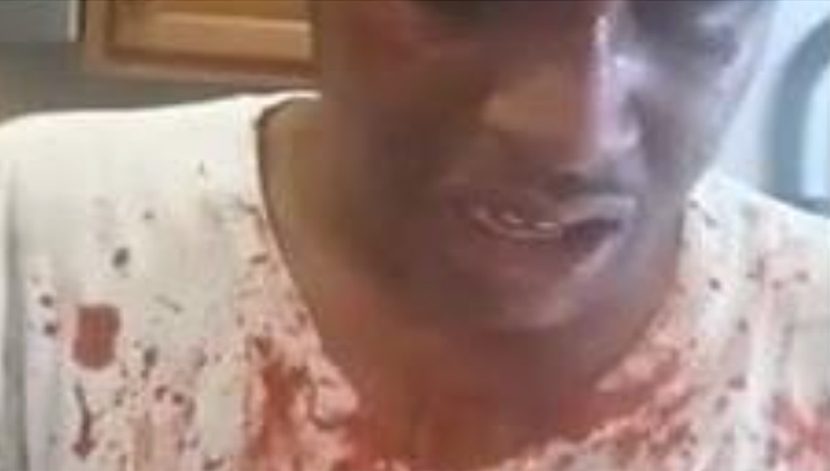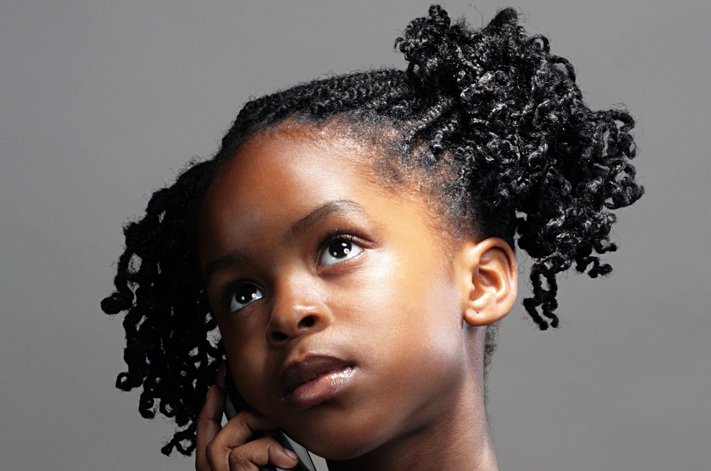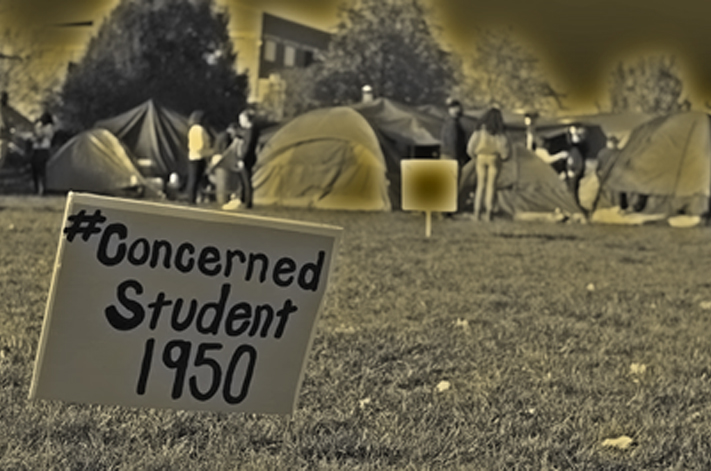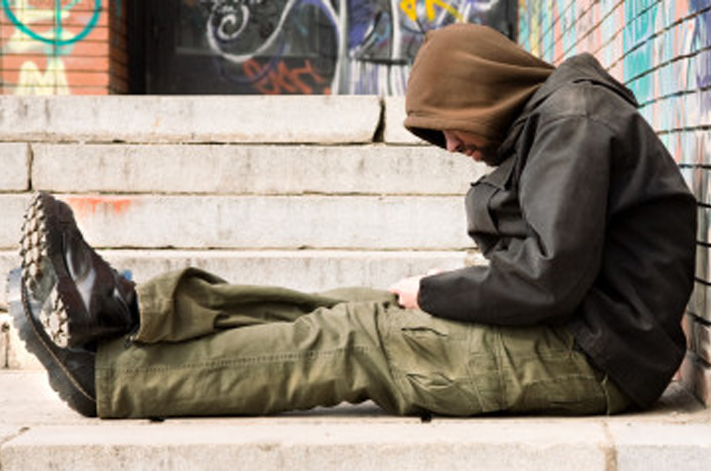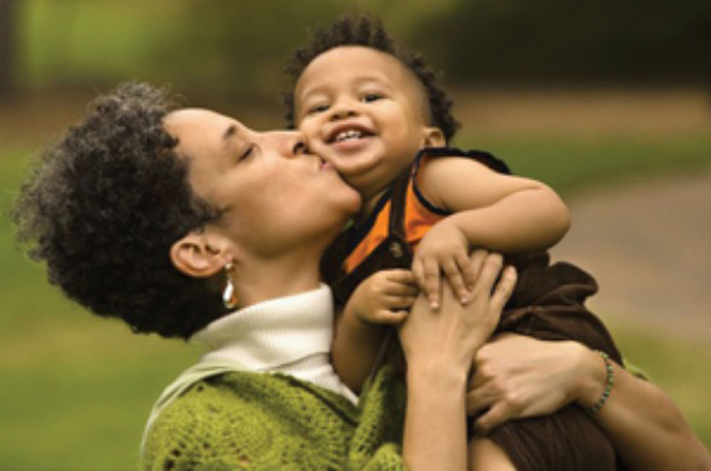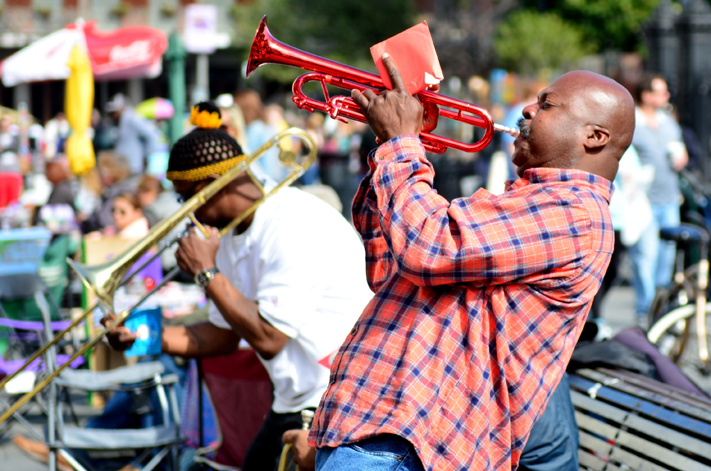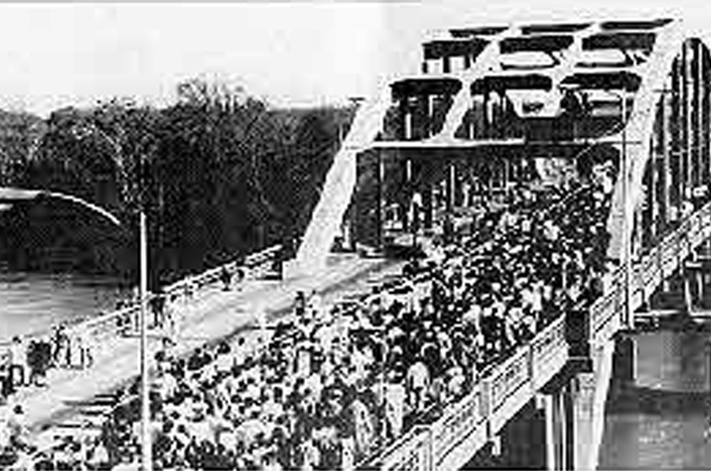Project Description
'We must love each other and protect each other…'
“
Then the loud sound of skin making contact with skin reverberated through the late night, down the empty street. My brother, sister and I rushed to our window to peak through the blinds to see what was happening. My fingers pulled the blinds down and I peeped out into the darkness; I could see a young, dark-skinned woman, crying and begging like a sinner seeking forgiveness at the feet of a Jesus statue for some unknown, unrighteous sin. Except, the man standing in front of her wasn’t frozen in stone. With all the force he could muster, he launched a kick that landed square in her stomach.
“Call the cops,” my brother ordered.
My sister, the eldest, picked up the phone and dialed 9-1-1.
“911, do you have an emergency?” A voice questioned on the other side of the line.
“Well, we are all alone in the house and there is a man outside beating a woman and she is crying,” my sister stammered.
“Okay. We will send an officer,” the 911 operator assured her.
We waited. The cops never came.
Instead, a neighbor and his friend creeped up to the scene in an old beat up Cadillac. He jumped out of the car wielding a bat, then hit the man in his face, knocking him to the ground. I saw his friend in the trunk of the car rummaging, until his hands found the long, slender shot gun and his face filled with passion. He walked up to the pair who were screaming epithets back and forth at one another — as the bat raised and lowered — and cocked the gun in the direction of the woman’s assailant. My siblings and I continued to watch through the window.
“You fucking like hitting women?” the neighbor’s friend questioned, pressing the gun against the man’s cheek. The woman rose to her feet and ran home. For a few more moments, yelling and threatening between the men continued, until the neighbor and his friend jumped back into their car and screeched away, leaving the abusive man shocked and bleeding in the middle of the street.
The sounds of chirping crickets and croaking frogs returned in the absence of the violence.
My sister, brother and I all slept in the living room that night, speechless. Intermittently, I would break the silence to ask, “But why didn’t the police ever come?” It did not take long for me to find out.
That was what my interactions with police were like before my mother packed us up and made the move down south to Texas, to a poor, mostly Black neighborhood, when I was about 10. It was there that I learned the logic and passion behind the phrase “Fuck the police!” It was then that I learned that, as a Black person — man, woman or child — the law is not meant to protect but to oppress you. It was a difficult lesson to learn.
My mother was a hard-working woman who did nights at the hospital to provide for her three children. Before leaving home at night, she would recite the routine security checklist that we were supposed to follow:
1. Lock the door behind me
2. Don’t open it for anybody
3. Make sure the windows are closed and locked
And lastly:
4. If anything happens, call 9-1-1
She expected, despite our poverty and our blackness, law enforcement would always be there to protect us in her absence.
One evening, a mob of 20-30 or so teenagers gathered in front of my home to play audience. I had not been made aware, but I was the headliner of an impending brawl. Supposedly a fight between the girl next door, who up until then had been my best friend, and I was to take place and everyone from the fenced-in neighborhood of 100 or so apartments showed up to watch. My mother was already off at work and admittedly, I was not much of a fighter. So, my sister heeded my mother’s advice, kept the door locked and called the police.
“Do you see any weapons?” The 9-1-1 dispatcher inquired after my sister hastily detailed the situation.
“Ah, no, I guess not,” she responded while looking through the blinds at the crowd that only seemed to double in size like a dividing cell. The other line immediately went quiet. The dispatcher had hung up. The police weren’t coming. Our safety was our problem. After two kids launched rocks through our windows, I pulled my sleeves up and marched outside to fight. I do not bare any scars from that particular evening and I was lucky that this brawl ultimately was just about children vying for control over an environment left uncontrolled. Meanwhile the war on the Black community continued to be waged.
A curfew was enacted: by dark, anyone 18 or under had to be at home and all adults who remained outside could be scrutinized or questioned. So weekend trips to an evening movie were out of the question. And innocent day-to-day endeavors like hanging out at the pool or riding bikes became a problem as soon as the sun began its descent. Tons of kids were stopped, searched and sometimes even arrested while walking to the grocery store or home from playing a late night game of baseball or basketball. I almost became one of them when I went out to the grocery store one night, after my mom went to work, to buy some candy. As I crossed the street, I saw red and blue flashing lights and immediately made a dash for it. When I got home, I was out of breath and my heart was racing. Running from the cops was no longer fun and games — my freedom depended on it.
It was like existing in a prison. The police were guards, patrolmen hired to keep us confined. But they turned a blind eye to anything that happened on the inside. They never came to our aid. Your survival depended on your own ability to protect yourself. Displays of aggression and hostility were signs that you were not to be messed with. If you didn’t know someone, you stared but never smiled at them. If someone stole something from you, you got over it unless you wanted to fight to get it back. A fight between two individuals could easily became one person fighting 10 and knives or guns were never out of the question. Sometimes a passerby would speak of “peace” on your behalf, but that was infrequent. We had no protection but our two fists or whatever some fearlessly concealed in their pockets. We could not, as my mother once instructed, simply “call 9-1-1″ for help.
Yet officers were quick to call for backup whenever stops were made. While driving home early one morning, my mother was a bit tired from working the overnight shift and drifted into the neighboring lane. Three police cars pulled her over to question whether or not she was inebriated. Rows of Black men with their hands raised to the sky were always guarded by at least six or more officers. There was never a shortage of police force to disseminate tickets whenever students returned to school after lunch a bit late. My sister received such a ticket and was forced to go to court where she was asked by a judge, “Do you prefer trial by judge or trial by jury?”
This should come as no surprise from a state that imprisons more of its population than any other state in the United States of America — the country that, despite only having five percent of the world’s population, houses 25 percent of the world’s prison population, with Blacks accounting for 40 percent, despite only making up 12-13 percent of the entire American population. Black men constitute 60 percent of all incarcerated males. And many of these imprisoned individuals have found themselves behind bars for decades for non-violent offenses.
As a poor Black person, it is much easier to be victimized by America’s law enforcement and judicial system than it is to be protected by it. It is how a community can be over-policed, yet under-served. It is how a phrase like “Fuck the police!” was born.
However, the police are merely agents of the state. It is the state that does not care about Black life. This great nation was founded on and is plagued by a system of racism, poverty, oppression, Black dehumanization, economic warfare and White supremacy. It’s a system that allows Black men, women and children to be shot down in the streets like animals while their murderers walk away with a clean conscience.
Though I do understand Black America’s angst and anger and though my voice is sometimes among those shouting “Fuck the police!” at rallies seeking justice in the death of Michael Brown, I do not believe justice will look like one White police officer being charged for the death of one Black man.
It is the United States that should be indicted for the murder of our Black brothers, sisters and children. And it is time for those in the Black community to stop fighting one another, to stand together once more and to declare that indictment. Said most lucidly and plainly by Assata Shakur:
'It is our duty to fight for our freedom. It is our duty to win. We must love each other and protect each other. We have nothing to lose but our chains.'
Tiffanie Drayton is a freelance writer and graduate of The New School University. She hopes to one day return to an equal and racially tolerant America.
This piece was reprinted by EmpathyEducates with the kind permission of the Author. We thank Tiffanie Drayton for her enduring spirit, her open heart, and a mind so deep.
